- News
- Reviews
- Bikes
- Components
- Bar tape & grips
- Bottom brackets
- Brake & gear cables
- Brake & STI levers
- Brake pads & spares
- Brakes
- Cassettes & freewheels
- Chains
- Chainsets & chainrings
- Derailleurs - front
- Derailleurs - rear
- Forks
- Gear levers & shifters
- Groupsets
- Handlebars & extensions
- Headsets
- Hubs
- Inner tubes
- Pedals
- Quick releases & skewers
- Saddles
- Seatposts
- Stems
- Wheels
- Tyres
- Tubeless valves
- Accessories
- Accessories - misc
- Computer mounts
- Bags
- Bar ends
- Bike bags & cases
- Bottle cages
- Bottles
- Cameras
- Car racks
- Child seats
- Computers
- Glasses
- GPS units
- Helmets
- Lights - front
- Lights - rear
- Lights - sets
- Locks
- Mirrors
- Mudguards
- Racks
- Pumps & CO2 inflators
- Puncture kits
- Reflectives
- Smart watches
- Stands and racks
- Trailers
- Clothing
- Health, fitness and nutrition
- Tools and workshop
- Miscellaneous
- Buyers Guides
- Features
- Forum
- Recommends
- Podcast
news
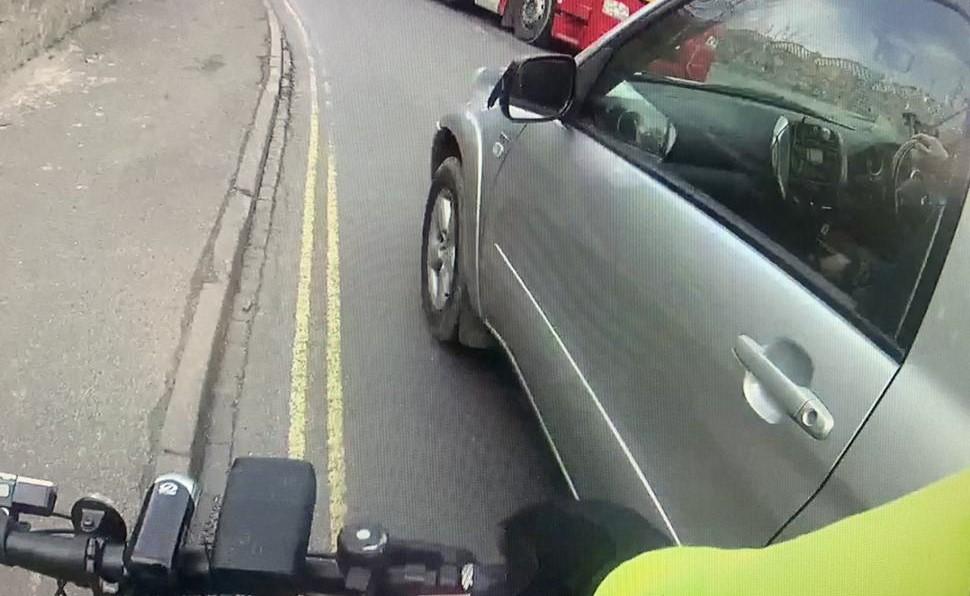 Close pass operation
Close pass operation “A close pass isn’t an offence and a lot of cyclists don’t realise that”: Police chief’s “odd” claim that cyclists need education on driving offences highlighted as evidence of UK’s current road safety “mess”
As Gloucestershire Constabulary announced that it was adopting Operation Snap, enabling road users to submit video evidence of dangerous or careless driving to the police through a dedicated online portal, the force’s non-crime unit head has come under fire from cyclists, after claiming that “a lot” of people who ride bikes “don’t realise that… a close pass itself isn’t an offence”.
The officer also said that the police “need to try and find a way of educating” people who submit footage to Operation Snap that the clips need “to show that the driver or rider is being inconvenienced in some way”, while bizarrely adding that “in the Highway Code you have something called a close pass, where you should allow cyclists 1.5m width”.
The muddled messaging from Gloucestershire Constabulary has been widely criticised on social media by cyclists, who have argued that the officer has failed to realise that close passes often constitute an example of careless driving, and that the officer’s comments misrepresent cyclists’ concerns about road safety and highlight “the mess in which we find ourselves as we seek to lower road crime against cyclists and encourage more people to cycle”.
This social media backlash followed Gloucestershire Constabulary’s announcement this week that it is the latest UK-based local police force to take part in Operation Snap, an online portal which allows road users to submit footage of instances of alleged dangerous or careless driving.
Across the UK, 24,000 clips have been submitted using Operation Snap over the last six months, with Gloucestershire’s dedicated officer currently dealing with over 140 submissions a month. According to Gloucestershire Constabulary, around 25 to 30 per cent of the footage so far has resulted in a Fixed Penalty Notice being issued, or an educational course being offered to the offending driver.
Speaking to the BBC, the head of Gloucestershire’s non-crime unit, Robert Vestey, said that dashcam and cycle camera footage has proved an “emerging way” of dealing with dangerous or careless driving “over the last three or four years”.
“It’s simple, it’s very effective, and it allows us to educate as well as prosecute where we need to,” Vestey said.
“Quite often they don’t even realise how bad their driving has been, so it allows us to work with them and just improve the safety on Gloucestershire’s roads.”
However, it was Vestey’s comments concerning the threshold at which the driving captured in the footage constitutes an offence – particularly when it concerns motorists’ actions around people on bikes – that have bemused and baffled cyclists on social media.
“The footage itself has got to prove the offence,” Vestey said. “There are some offences though that are so bad they would immediately go to court, and others that the public think are an offence but they’re not, so we need to try and find a way of educating people on that.”
The officer also insisted that the footage submitted has “to show that the driver or rider is being inconvenienced in some way”, and that he believes that one of the key solutions to increasing road safety is to send “advisory letters” to offending drivers detailing the Highway Code and the law.
He continued: “We get a lot of images sent in from cyclists, and in the Highway Code you have something called a close pass, where you should allow cyclists 1.5m width.
“But a close pass itself isn’t an offence and a lot of cyclists don’t realise that, so they get quite frustrated with us.”
“Most other forces reassure their communities that they do act against crime”
Since the Gloucestershire officer’s statement was published earlier this week, it has been met in particular with one, rather bemused question: What on earth does he actually mean?
“This statement, from the representative of a police force, shows us the mess in which we find ourselves as we seek to lower road crime against cyclists and encourage more people to cycle,” Tim, a cycling instructor and road safety campaigner, wrote on X (formerly Twitter) in response to Vestey’s comments.
“‘But a close pass itself isn’t an offence’ is an odd thing to say,” Tim said in a lengthy thread. “Close passing cyclists is an example of the offence of driving without care and consideration. Every week, hundreds of drivers face police action for close passing. The Metropolitan Police explain it clearly on their Driving Offences website: driving too close to another vehicle is an example of careless or inconsiderate driving.
“‘A lot of cyclists don’t realise that’ is equally odd. Cyclists who report close passes to their force are mostly aware that close passing cyclists is an example of the offence of driving without care and consideration leading to drivers facing police action every week.”
Tim continued: “The police force representative misrepresents the difference between laws on driving behaviour that are cited in the Highway Code – signalled by rules using MUST or MUST NOT – and the rules which set out the minimum standard for careful and considerate driving signalled by rules using SHOULD or SHOULD NOT.
“SHOULD or SHOULD NOT rules, which set out the minimum standard for careful and considerate driving, are (not unsurprisingly) the rules used to evidence the offence of Driving Without Care and Consideration.
“Could the statement be a ‘slight-of-hand’ attempt to justify why the police force they represent don’t take action to the same standards as other forces? If cyclists reporting close passes know that other forces take action to best practice, it’s not surprising that the force representative sees that these cyclists ‘get quite frustrated with us’.
“They just misrepresent why cyclists who report close passes get frustrated. The frustration is not a failure to understand the law, but a frustration with a force not applying the law for the purposes that it was introduced.”
> Here's what to do if you capture a near miss, close pass or collision on camera while cycling
Tim also argued that Vestey made the “opposite misrepresentation” when he, somewhat bizarrely, stated that “in the Highway Code you have something called a close pass”.
“While the term ‘close pass’ isn’t used in the Highway Code, it clearly sets out a rule that we should ‘leave at least 1.5 metres when overtaking cyclists at speeds of up to 30mph, and give them more space when overtaking at higher speeds’. Variability is classic excuse talk,” Tim wrote, before adding that, in any case, the 1.5m rule forms part of the code’s aim to “promote safety on the road”.
Responding to Tim’s thread, Henry Godwin noted the ‘postcode lottery’ aspect of road safety policing frequently cited by cyclists.
“If you dial 101 in the Avon and Somerset Constabulary area, one of the menu options is to report a close pass of a cyclist. So thankfully not all police jurisdictions are as ignorant of the Highway Code,” Henry said.
“All forces are moving in the right direction, and most forces make strong statements on road harm reduction but, as things change too many individuals are lagging behind,” added Tim. “Training is essential for improvements in forces.”
Responding to a post arguing that the officer’s statement was merely “clumsy” and nevertheless linked close passing to a potential careless driving offence, Tim said: “It is clumsy, and it does reference that relationship of behaviour to offence.
“However, it’s deployed to justify not taking action against those offending. Most other forces articulate this relationship to reassure their communities that they do act against crime.”
While Gloucestershire’s foray into the world of Operation Snap hasn’t been without its hiccups so far, they’re not the only force who have been criticised for their approach to the road safety portal.
In spring 2023, West Midlands Police came in for criticism after it emerged that the force had prosecuted just one driver from 286 videos of alleged close passes submitted by cyclists.
However, in February the force’s Operation Snap figures revealed a stark increase in third-party video footage leading to police action compared to the previous year, with a third of cyclists’ reports in January 2024 leading to a motorist receiving a fixed-penalty notice – and 97 per cent of cyclists’ reports being actioned in some way.
Meanwhile, a Freedom of Information request last year revealed that 80 per cent of the almost 1,000 motorists accused of close passing a cyclist in Surrey over the previous 15 months were issued with warning letters, with only three incidents resulting in a prosecution.
Responding to criticism of its inaction on close passes, Surrey Police told road.cc that “in the majority of cases, issuing a warning letter is the most appropriate course of action”, due to the “evidential viability” of the submitted videos and the “associated threat, harm, and risk” of the driving offence committed.
The force also claimed that it “regularly” receives video submissions of alleged driving offences “from the same people”, and called on those who frequently submit close pass clips to “engage with us further and work together to tackle” issues around road safety.
After obtaining a PhD, lecturing, and hosting a history podcast at Queen’s University Belfast, Ryan joined road.cc in December 2021 and since then has kept the site’s readers and listeners informed and enthralled (well at least occasionally) on news, the live blog, and the road.cc Podcast. After boarding a wrong bus at the world championships and ruining a good pair of jeans at the cyclocross, he now serves as road.cc’s senior news writer. Before his foray into cycling journalism, he wallowed in the equally pitiless world of academia, where he wrote a book about Victorian politics and droned on about cycling and bikes to classes of bored students (while taking every chance he could get to talk about cycling in print or on the radio). He can be found riding his bike very slowly around the narrow, scenic country lanes of Co. Down.
Latest Comments
- ChasP 4 sec ago
It's a problem with all tyres because of the changing etrto standards. It wasn't that long ago that road tyres were designed to fit a 13mm internal...
- hawkinspeter 18 min 49 sec ago
However, their story does make sense with the plate supposedly standing for "Number one for the GAS" where "The Gas" is a common description used...
- lukebarog 30 min 10 sec ago
I experienced the same. They have a sizing chart on their website which looks really accurate, gives the widths in millimeters for all the...
- anotherflat 36 min 38 sec ago
I cannot see how the type of cycle lane has any bearing on cars pulling out in front of you....
- DanaColby85 41 min 51 sec ago
Here in York, at the city centre's recycling facility in James St, we're lucky to have a special ride-in area for cyclists....
- Louis Wells 1 hour 35 min ago
it would be funny if a judge could ban the passenger from driving (if licenced) and give them an asbo preventing them form being a passenger in a...
- mark1a 2 hours 17 min ago
Posting them here in the comments six times a day is just excessive anyway.
- Creakingcrank 2 hours 53 min ago
I use a cheap motorcycle dashcam on my e-bike (~£100 for 2 cameras and a common recording box). Comes with a wired remote that I don't bother with....
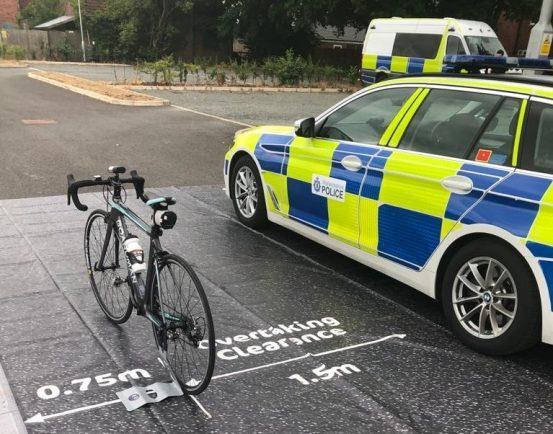
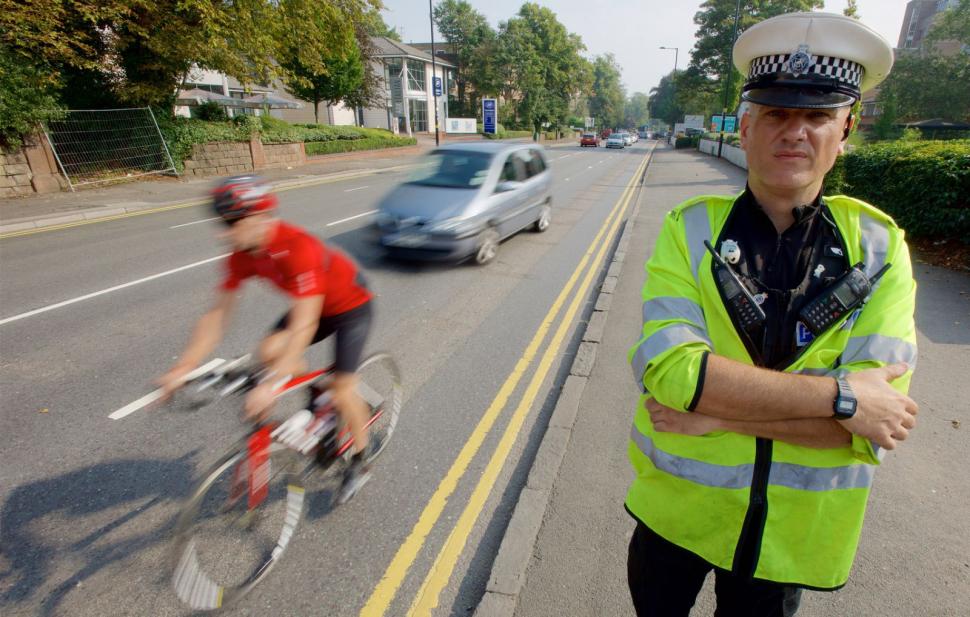
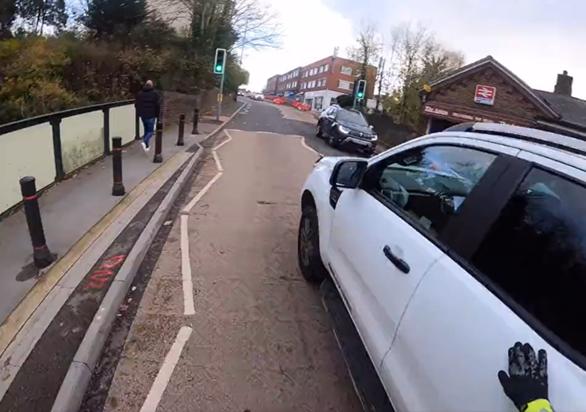
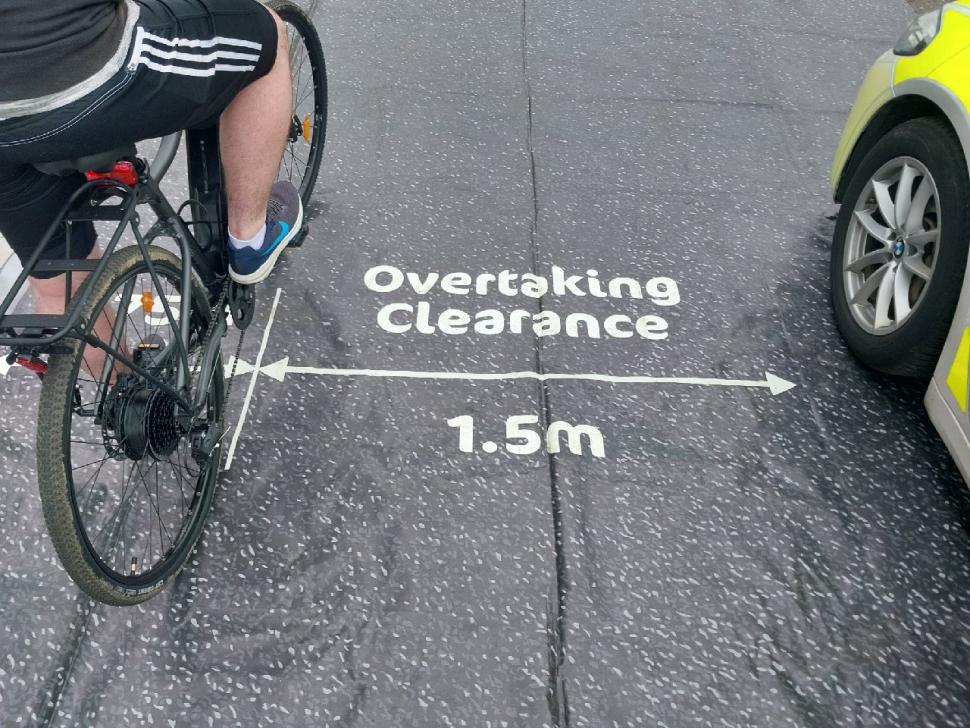
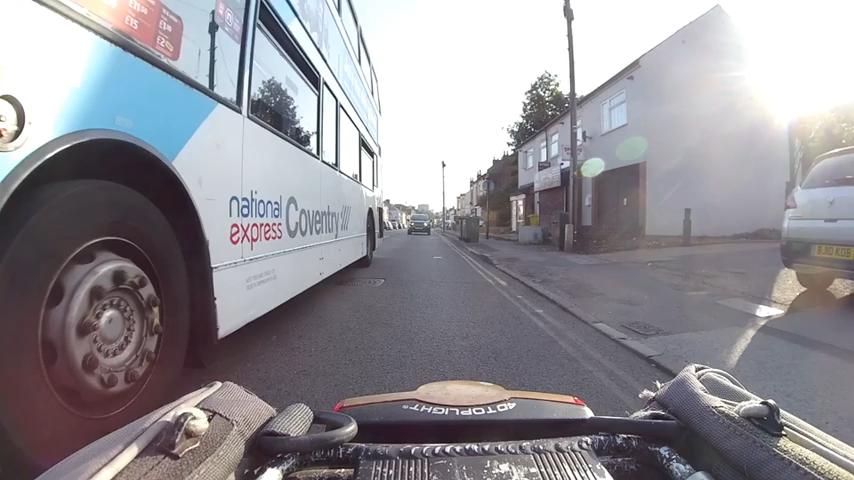
Add new comment
79 comments
All excellent advice but I wonder how much time this takes per submission?
Of course there must be a police calculus too for reporting - presumably even forces which aren't trying to say "just don't bother" want there to be some barrier to climb as they're aware that otherwise even just reviewing well- evidenced submissions would overwhelm their resources (this isn't an uncommon offence sadly)?
A clear case for a national effort to collect the submitted and ajudged dangerous driving as training data for a video machine learning model that can reduce the police service workload and increase their capacity to process the deluge...
I think a simpler approach (and probably more effective than current) would be a different kind of machine. Dust off ERNIE and set odds of something better than 100:1 - then if your submission passes some basic tests (e.g. you took pains to actually submit it...) "are you feeling lucky"?
Very true. You really have to do the Plods job for them; providing the video evidence alone isn't enough, you need to make the conviction as easy as possible for them, by providing lots of extra information. The same with everything these days; I'm still waiting for my staff-discount at the supermarket for scanning my own groccceries, and restraunt staff-discount for taking my own order with my own device. No different here sadly
And when you get on a bus now (First Group Bristol, anyway) to find that you can't buy anything other than a single ticket from the driver, and if you do try and buy it from the driver and aren't paying with "cash" (the horror! the horror!) then they just mutter "Tap on, tap off" and don't give you a ticket or even explain WTF that means
"...the force’s non-crime unit head..."
Careless driving is a criminal offence (it's not a civil matter).
So does that mean that Something Will Be Done if I submit clips showing me being inconvenienced and held up all the f-ing time by nose to tail motor traffic, all carrying only a sole person?
I am a Gloucestershire resident and I have been submitting videos of poor driving since August 2020 (https://road.cc/content/news/near-miss-day-461-dangerous-overtake-rain-2...). As far as I know only one report has resulted in points and a fine. When I started they didn't have a system for submitting videos and it had to be done with emails. They then developed their own online system before moving to OpSnap around Dec 2022.
I will just leave these observations here.
The following quote is from the FAQ section of the Gloucestershire OpSnap website : https://operationsnap.gloucestershire.police.uk/faqs
From the above article.
However I would direct you to https://road.cc/content/news/nmotd-674-driver-inconveniences-cyclist-288521 where the officer seems to admit that I was inconvenienced but still no action.
And finally I have uploaded a graph which shows the outcomes of reports by cyclists for 2023. As far as I am aware they haven't published any figures since.
Sometimes whatdotheyknow.com will show an foi request for data though often theyll respond with speeding camera fines data, not dashcam reports data.
But it's rubbish most forces don't publish the data as a matter of course. I think most are trying to quietly ignore the problem, hope people get bored reporting it and they can drop pretending to be interested.
The above graph reflects the data obtained through an FOI request but even that was a struggle. The FOI was submitted in Nov 23 and finally replied to in Jan 24. A couple of links with more info.
https://www.gloucestershirelive.co.uk/news/cheltenham-news/gloucestershi...
https://www.whatdotheyknow.com/request/operation_snap_submissions_and_o#...
They say they will publish data regularly so if we interpret this as yearly I thought I'd wait till the end of this year before asking for the 2024 data. If it's not forthcoming I guess another FOI will be needed.
Who the f*** is this clown who is meant to be in charge? That is all.
Just like saying that stabbing someone with a 10" zombie knife isn't an offence. Correct, there isn't a specific offence of stabbing someone with a 10" zombie knife, but it is a covered in a general law that allows all such instances to be prosecuted. Dumb pedantic police officer trying to be clever but failing miserably.
As an Engineer.. I dislike these images of 1.5m clearance
To be 1.5m clear - you don't measure from the wheels. Take the handlebars (or half a human) .. It's about 0.3-0.35 too close..
And yet regardless of that engineering point, it would still be more room than the majority of motorists give cyclists.
So I'm happy with a broader brush approach, the day when we can quibble about where the gap should be will be a happy day
Post removed as I was talking rowlocks! Thanks to the more careful reader of the legislation who pointed out my error.
I can tell you what they weren't thinking, and that is that they might need to consider anyone other than other motorists in any shape or form.
As a cyclist being close passed, I consider the surge in my adrenaline levels, the disruption to the airflow around me and the possibility that I don't have enough room to manouevre around a pothole or piece of detritus lying in the road to be plenty inconvenient, thank you very much.
It is not that big a step from a police officer denying cyclists have been inconvenienced when a close pass occurs to the all too familiar "well, I didn't hit you, did I?" that some drivers seem to think is the acceptable standard.
I wonder why more close passes aren't prosecuted as assault as they typically leave the victim fearing for their safety.
I think making the police aware of the fear element is very important when submitting a video.
My hit rate is about 80% of submissions being progressed to some form of action (letter, course, points or court summons - they don't say which). In hindsight, the failures are the ones where I just reported the scenario and assumed the careless/ inconsiderate/ dangerous driving in the video was self evident.
It takes a little bit longer to write my statement, but saying what I felt, and how I interpeted the driver's actions seem to have an effect on the police response.
Obviously all of this is irrelevant if you are in Lancashire!
A while back I reported a close pass with threatening verbal abuse as an assault (I was actually scared by the encounter and I cycle in traffic a lot). The difference in the response was incredible. All reported online but ticked the box for assault/threatening behaviour rather than driving offence. Police got back to me in 2 hours, victim support rang me the following day.
Report a driving offence where I have had to slam my brakes on as somebody tries to pass me before a traffic island. Hear nothing for 6 months (so far...)
No, he's not correct.
The offence, under S3 of the RTA 1988, is "Careless, and inconsiderate, driving.
"If a person drives a mechanically propelled vehicle on a road or other public place without due care and attention, or without reasonable consideration for other persons using the road or place, he is guilty of an offence." (emphasis added)
S3ZA goes on to define both "careless" and, separately, "inconsiderate" driving.
You are right that S3ZA(4) states that "A person is to be regarded as driving without reasonable consideration [i.e. inconsiderate driving] for other persons only if those persons are inconvenienced by his driving."
But you miss that 3ZA(2) states "A person is to be regarded as driving without due care and attention [i.e. careless driving] if (and only if) the way he drives falls below what would be expected of a competent and careful driver."
A close pass may not be "inconsiderate", but it is "careless".
You are right, I missed that.
I was actually shunted from behind, nearly making me fall off in the middle of the not so wide road as I pulled away behind a van, we had stopped for traffic passing parked cars at a school, a big Transite was behind my trailer and he hit as he moved forward too fast, made me look back at him, all the Wiltshire Police said at Swindon "he did not hit your bike" and refused to do any but drink more coffee! Video: https://www.youtube.com/watch?v=4Tl-b8XaReo
Punching someone in the face isn't an offence, but it's an example of the offences of common assault, ABH or GBH.
Soshul meejah backlash. As if anyone in his right mind would care, or even notice.
Dear Surrey Police,
They are engaging with you to improve road safety, they're trying to work with you to identify and educate/penalise poor drivers.
Except they don't do any prosecuting or indeed take any action when presented with video evidence. They're as bad if not worse than the rest.
I've had a similar conversation with TVP. Oddly enough the conversation was instigated as a result of footage that I had submitted that was being prosecuted. His intention was to ensure my submissions were prosecutable and that they don't have to waste valuable resources on footage that can't be prosecuted. I obviously confirmed that nearly all my submissions showed multiple breaches of the HC. The most obvious one is trying to squeeze between a cyclist and oncoming traffic, which is driving without due care and attention.
The messaging is clearly poor because he telling us what he doesn't want not what he does.
Rule 163 of the HC - ONLY overtake when it is safe AND legal to do so.
A close-pass is demonstrably not a safe overtake, therefore a contravention of the ACOP, and so a prosecutable offence unless the defendant can prove their actions were safe by other means
Agreed, but I think the issue is the specific distance. I'm not going to report every incident that's not 1.5m, but I would report an incident that's less than 1.5m when the car is doing 60mph.
The police should use some common sense - It's much better to prevent accidents than dealing with death, injury and traffic jams caused by accidents.
Pages